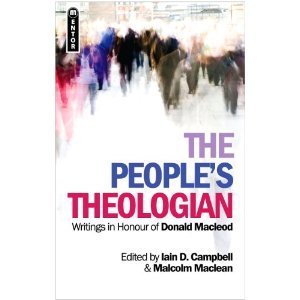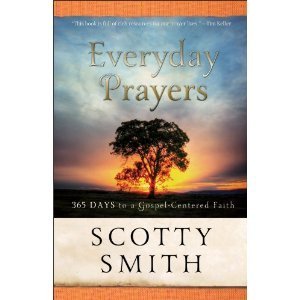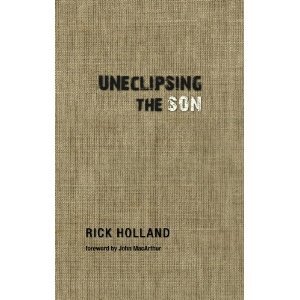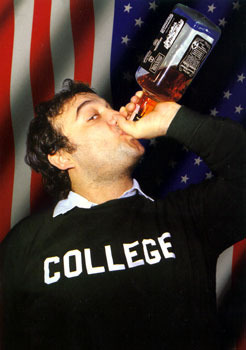Kevin DeYoung's Blog, page 166
August 31, 2011
Books I Haven't Had Time to Read
As a blogger I receive a lot of free books (but, I should mention, am never paid to mention them in a blog post). Unfortunately, I can't read most of them. Sometimes that's just as well. But many times I'll get books from people I like, know, and respect. Their books look helpful and I wish I could read them. But alas, we are finite creatures with finite time. And finite resources too–but you may still want to purchase one or two of these new releases. (Note: the brief descriptions are excerpted from the books themselves.)
 Iain D. Campbell and Malcom Maclean (editors), The People's Theologian, Writings in Honour of Donald Macleod (Christian Focus Publications, 2011). People hear Donald Macleod gladly. He makes little concession in his lecturing or preaching to ignorance of Biblical truth, and he makes no apology for theological language. Nevertheless, because he makes doctrine come alive, people are drawn in.
Iain D. Campbell and Malcom Maclean (editors), The People's Theologian, Writings in Honour of Donald Macleod (Christian Focus Publications, 2011). People hear Donald Macleod gladly. He makes little concession in his lecturing or preaching to ignorance of Biblical truth, and he makes no apology for theological language. Nevertheless, because he makes doctrine come alive, people are drawn in.
 Peter Jones, One of Two, Seeing a World of Difference, (Main Entry Editions, 2010). This book will help you see a world of difference–between the only two religions: worship of the creation (what this book calls One-ism) or worship of the Creator (Two-ism). Using the apostle Paul's structure in Romans 1, Peter Jones shows why your choice affects everything you think and do.
Peter Jones, One of Two, Seeing a World of Difference, (Main Entry Editions, 2010). This book will help you see a world of difference–between the only two religions: worship of the creation (what this book calls One-ism) or worship of the Creator (Two-ism). Using the apostle Paul's structure in Romans 1, Peter Jones shows why your choice affects everything you think and do.
 Mike McKinley, Am I Really a Christian?, (Crossway, 2011). We have been given biblical criteria to help us evaluate whether we are indeed followers of Christ. Mike McKinley shows us the importance of examining our standing with God and helps us to fearlessly ask the hard questions, ultimately allowing us to see whether we are in the faith and what exactly that entails.
Mike McKinley, Am I Really a Christian?, (Crossway, 2011). We have been given biblical criteria to help us evaluate whether we are indeed followers of Christ. Mike McKinley shows us the importance of examining our standing with God and helps us to fearlessly ask the hard questions, ultimately allowing us to see whether we are in the faith and what exactly that entails.
 Scotty Smith, Everyday Prayers, 365 Days to a Gospel-Centered Faith, (Baker Books, 2011). Each day includes a Scripture reference and an inspirational original prayer, born from moments of great faith and times of crisis. Like a modern-day book of Psalms, Everyday Prayers is a pathway to growing in grace to explore year after year.
Scotty Smith, Everyday Prayers, 365 Days to a Gospel-Centered Faith, (Baker Books, 2011). Each day includes a Scripture reference and an inspirational original prayer, born from moments of great faith and times of crisis. Like a modern-day book of Psalms, Everyday Prayers is a pathway to growing in grace to explore year after year.
 Mark Galli, God Wins, Heaven, Hell, and Why the Good News Is Better than Love Wins, (Tyndale, 2011). God Wins examines the various questions raise by the book Love Wins and what the Bible says and doesn't say about these issues. With a small-group discussion guide featuring relevant Scripture passages, God Wins is for both individuals and groups seeking clarity concerning these crucial questions.
Mark Galli, God Wins, Heaven, Hell, and Why the Good News Is Better than Love Wins, (Tyndale, 2011). God Wins examines the various questions raise by the book Love Wins and what the Bible says and doesn't say about these issues. With a small-group discussion guide featuring relevant Scripture passages, God Wins is for both individuals and groups seeking clarity concerning these crucial questions.
 Tullian Tchividjian, Jesus Nothing = Everything, (Crossway, 2011). Tchividjian takes particular aim at self-righteousness. In contrast, the gospel of grace provides the only sustainable motivation for Christians. This book delves into the profound theological truths of the gospel, yet the message is intensely practical.
Tullian Tchividjian, Jesus Nothing = Everything, (Crossway, 2011). Tchividjian takes particular aim at self-righteousness. In contrast, the gospel of grace provides the only sustainable motivation for Christians. This book delves into the profound theological truths of the gospel, yet the message is intensely practical.
 Rick Holland, Uneclipsing the Son, (Kress Biblical Resources, 2011). This book aims to bring you face-to face with the Christ of Scripture. Clear, biblical, compelling, Holland will drive you relentlessly to the conclusion that you must give yourself to the worship of Jesus or forever stumble in the half-light of spiritual uncertainty and disaffection.
Rick Holland, Uneclipsing the Son, (Kress Biblical Resources, 2011). This book aims to bring you face-to face with the Christ of Scripture. Clear, biblical, compelling, Holland will drive you relentlessly to the conclusion that you must give yourself to the worship of Jesus or forever stumble in the half-light of spiritual uncertainty and disaffection.
 Dan Phillips, The World-Tilting Gospel, Embracing a Biblical Worldview and Hanging on Tight, (Kregel Publications, 2011). Using a whole-Bible approach to the Gospel, Phillips shows us who we really are, what kind of world we are really living in, who God really is, and what difference the Gospel really makes in our everyday lives.
Dan Phillips, The World-Tilting Gospel, Embracing a Biblical Worldview and Hanging on Tight, (Kregel Publications, 2011). Using a whole-Bible approach to the Gospel, Phillips shows us who we really are, what kind of world we are really living in, who God really is, and what difference the Gospel really makes in our everyday lives.
 Daniel J. Bennett, A Passion for the Fatherless, Developing a God-Centered Ministry to Orphans, Kregel Academic & Professional, 2011). This book exposes believers to the scriptural mandate to care for orphans, helps them understand why God has issued that imperative, and equips them, biblically and practically, to joyfully respond to that call. Each chapter includes study questions for personal reflection of small-group discussion.
Daniel J. Bennett, A Passion for the Fatherless, Developing a God-Centered Ministry to Orphans, Kregel Academic & Professional, 2011). This book exposes believers to the scriptural mandate to care for orphans, helps them understand why God has issued that imperative, and equips them, biblically and practically, to joyfully respond to that call. Each chapter includes study questions for personal reflection of small-group discussion.
Kings of Judah: Manasseh's Metanoia
2 Chronicles 33:1-25
He prayed to him, and God was moved by his entreaty and heard his plea… (v. 13a)
Change is hard. We all make goals we don't meet–exercise more, eat less, have a quite time, turn off the t.v. Sinful habits are especially hard to change: pornography, gossip, unforgiveness. Repentance is hard work. It means more than regret or embarrassment for our mistakes. Repentances means sorrow for sin, confession of sin, and turning from sin. Repentance means metanoia, the Greek word for change of mind or direction.
Manasseh was a bad king, probably the worst king Judah has ever had, at least the worst king who ruled long enough to do the most worst things. Most of Manesseh's reign was positively wicked. But toward the end of his life, the Lord broke his pride. Manessah prayed to the Lord and the Lord heard his prayer. Manesseh was a changed man, who changed his actions and changed the kingdom.
Repentance is always an option. It's never too late. Granted, Manasseh's previous wickedness could not all be undone. He was still known as a bad king. But don't miss the two miracles of this story. One, Manasseh changed after years of wickedness. Two, God forgave. Come to Jesus and keep coming back. Everyone who calls on the name of the Lord will be saved.
August 30, 2011
Maybe We Do Want the Polar Ice Caps to Melt
Man, if polar bears ruled the world ocean liners would be obliterated and Michigan State would get nuked. Be afraid of technologically savvy, egregiously violent, belligerent polar bears who grew up in the 1980s–be very afraid.
How to Make a Command Sink or Swim
One of the reasons we struggle with imperatives, is because they are not always handled wisely. For example, the Bible tells us plainly that we must pray (Col. 4:2; 1 Thess. 5:17). Prayer is a requirement for the Christian and preachers are right to insist upon the practice. And yet, there is a way to make this command sink and a way to make it swim. Or perhaps I should say, there's a way this command can make us sink or swim.
Consider two different exhortations to prayer. The first is from William Law (1686-1781) in A Serious Call to a Devout and Holy Life:
I take it for granted, that ever Christian, that is in health, is up early in the morning; for it is much more reasonable to suppose a person up early, because he is a Christian, than because he is a labourer, or a tradesman, or a servant, or has business that wants him. . . .
Let this therefore teach us to conceive how odious we must appear in the sight of Heaven, if we are in bed, shut up in sleep and darkness, when we should be praising God; and are such slaves to drowsiness, as to neglect our devotions for it.
For if he is to be blamed as a slothful drone, that rather chooses the lazy indulgence of sleep, than to perform his proper share of worldly business; how much more is he to be reproached, that would rather lie folded up in bed, than be raising up his heart to God in acts of praise and adoration! . . .
Sleep is such a dull, stupid state of existence, that even amongst mere animals, we despise them most which are most drowsy.
He, therefore, that chooses to enlarge the slothful indulgence of sleep, rather than be early at his devotions to God, chooses the dullest refreshment of the body; before the highest, noblest employment of the soul; he chooses that state which is a reproach to mere animals, rather than exercise which is the glory of Angels.
That's one way to entice the believer to pray. Here's another, this time from the Puritan Thomas Goodwin (1600-1680):
Mutual communion is the soul all true friendship; and a familiar converse with a friend hath the greatest sweetness in it . . . (so) besides the common tribute of daily worship you owe to (God), take occasion to come into his presence on purpose to have communion with him. This is truly friendly, for friendship is most maintained and kept up by visits; and these, the more free and less occasioned by urgent business, or solemnity . . . the more friendly they are . . . We use to check our friends with this upbraiding. "You still (always) come when you have some business, but when will you come to see me?" . . . When thou comest into his presence, be telling him still how well thou lovest him; labour to abound in expressions of that kind, that which . . . there is nothing more taking with the heart of any friend.
Which approach will serve you better over the long haul? I think we'd all opt for the second. The problem with the first quote is twofold: One, Law (no pun intended) insists with all his might on something that cannot be proven from Scripture (i.e., that we must get up early to pray). Two, he does not connect the biblical command to pray to the other biblical realities that would make us eager to pray. William Law makes me deathly afraid of the snooze bar. Thomas Goodwin makes me excited about prayer. Who wouldn't want the happiness of drawing near to God? Who doesn't delight to tell secrets and converse with a friend? Prayer will always be hard and will always take discipline, but when I see it as a means to communion with God, it feels more like a "get to" than a "have to." I still need to hear the imperatives about prayer–and even feel convicted when I disobey them–but the indicatives of the gospel make me happy to hear the commands and eager to obey.
August 29, 2011
Monday Morning Humor
August 27, 2011
If There Must Be Trouble, Let it Be in My Day
Thomas Paine–the pro-revolutionary patriot and pamphleteer–was certainly no Christian and no fan of Christianity. But I find this sentence to be sound Christian thinking:
Not a man lives on the continent but fully believes that a separation must some time or other finally take place, and a generous parent should have said, 'If there must be trouble, let it be in my day, that my child may have peace'; and this single reflection, well applied, is sufficient to awaken every man to duty.
Of course, Paine was rallying the country to independence from Britain, but his words can apply equally well to other ventures. Is there some institutional change you know must happen but have been putting off for fear of your own hardship? Is there a family confrontation that must take place but you are waiting for someone else to handle it and let you off the hook? Is there a difficult decision to be made in your church but you are happy to let the bomb explode in some other lap? Is there a need in the world, a crisis in your city, or a cause in your country that you are waiting for others to take up without you? Are you quietly saying to yourself, "If there must be trouble, let it be in someone else's day"?
Christian virtue is far different. If you or your family or your church or your movement or your nation are in trouble now, should not your heart cry out, "Better that I face this instead of my children"? If suffering is to come, if hardship is to ensue, don't you want to be summoned to the task rather than someone else? Aren't you eager to be a "generous parent"?
May God awaken a sense of duty for all who to ought to face trouble now that others can be at peace later.
August 26, 2011
Two Reasons We Should Never Pit the "Gospel of Paul" Against the "Gospel of Jesus"
Jesus: "I still have many things to say to you, but you cannot bear them now. When the Spirit of truth comes, he will guide you into all truth, for he will speak on his own authority, but whatever he hears he will speak, and he will declare to you the things that are to come. He will glorify me, for he will take what is mine and declare it to you. All that the Father has is mine; therefore I said that he will take what is mine and declare it to you" (John 16:12-15).
Paul: "For I would have you know, brothers, that the gospel that was preached by me is not man's gospel. For I did not receive it from any man, nor was I taught it, but I received it through a revelation of Jesus Christ" (Gal. 1:11-12).
Glory of God: Right from Wrong
Joshua 7:1, 16-21
Then Joshua said to Achan, "My son, give glory to the LORD God of Israel and give praise to him. And tell me now what you have done; do not hide it from me." (v. 19)
God gets great glory when you say to him: "I was wrong; you were right." It sounds simple, but we know in our hearts it's about as easy as long division on your toes. We don't like to admit we're wrong. We don't like to be wrong in playing trivial pursuit. We don't like to make mistakes at work. We don't like having to say I'm sorry.
But God gets glory when we admit our mistakes, because it demonstrates that we love God's good name more than our own, his commands more than our convenience, his will more than the easy way out. Jeremiah 13:16 says, "Give glory to the LORD your God before he brings darkness, before your feet stumble on the twilight mountains…" Achan admitted his fault, but it was too late for him and his family. There would be consequences for his sin.
What about you? Will you tell God your secret mistakes–your affair, your pride, your lust, your bitterness–before it is too late? Will you make amends with those you've hurt and get right with God or will you be like those who cursed the name of God and refused to repent and give him glory (Rev. 16:19)?
August 25, 2011
Sobering Report on College Drinking
 The article is entitled "College Drinking is Liberating, and a Good Excuse." I'm not sure if the folks at USA Today agree with the title, but it seems that college students certainly do. In the August 22 report, Sharon Jayson maintains that college students drink a lot and there's not much anyone can do about it.
The article is entitled "College Drinking is Liberating, and a Good Excuse." I'm not sure if the folks at USA Today agree with the title, but it seems that college students certainly do. In the August 22 report, Sharon Jayson maintains that college students drink a lot and there's not much anyone can do about it.
Colleges trying to stem the tide of student drinking have focused on the evils of intoxication and all the trouble that can ensue when students drink too much. But new psychological research suggests that the downsides of excessive drinking aren't bad enough to make students stop.
"They intend to get intoxicated," says psychologist E. Scott Geller, director of the Center for Applied Behavior Systems at Virginia Tech.
"We have shown in several studies that their intentions influence their behavior. If they intend to get drunk, it's difficult to stop that."
Geller, who has been studying alcohol awareness since the mid-1980s, notes that education hasn't worked.
"We thought if we could demonstrate to students that their performance deteriorated under alcohol, they would be convinced that their alcohol consumption has put them at risk," Geller says. But "knowing that one is impaired, physically and even emotionally, did not seem to reduce alcohol consumption."
Binge drinking is so bad that when researches tried using Breathalyzers at parties and bars it only encouraged students to drink more. No matter how many bad consequences are put in front of students–drunk driving, addictions, unwanted sexual intercourse, unwanted pregnancy, sexually transmitted diseases, decreased performance in school–Jayson argues that it just doesn't offset the two perceived benefits of drinking: it's liberating and a good excuse.
On the former, students thinking of alcohol as "liquid courage." It makes them more fun, more adventurous, less tied to inhibitions. On the latter, drinking is seen as a convenient way of avoiding personal responsibility. The sober girl who hooks up with a complete stranger might be considered a slut. But if she's drunk, then it's not really a mark on her character; she just had a few too many. Likewise, many students feel justified if they miss class or perform poorly because of a hangover. No matter what people tell them about the possible dangers of drinking, getting drunk, for many college students, is the best way to have fun. And whatever negative consequences may come, these are thought to reflect on the alcohol not on the individual.
What to Do?
How should Christians respond? Here we are at the start of another school year with thousands of students returning to classes and thousands more leaving home for the first time. Many of these students are already excited to drink. Others will be sucked into the party scene their first weekend and may not pull out of it for years…or ever. Many professing Christians will live duplicitous lives–getting smashed on the weekends while still trying to be the good Christian boy or girl their parents and ministry friends imagine them to be. The problem is huge and anyone wishing to minister to college students needs to think about a biblical approach.
Here are a few suggestions on how to begin formulating a Christian response to drunkenness on our college campuses.
1. Know your enemy. Like a good AA course, the first step is admitting we have a problem. I don't need to give you statistics to convince you that lots and lots of college students drink alcohol to get drunk. Churches and Christian leaders must not take their eyes off of this singular fact. Take almost any college in the country, especially the big state schools, and I can just about guarantee that the biggest obstacle to Christian discipleship is not Richard Dawkins or Bart Ehrman or all the heady objections to Christianity that our apologetics are meant to counter. We need apologetics. I'm 100% for taking every thought captive to Christ. But for most 17-22 year-olds the most common temptations to sin are alcohol and sex. Even when there are intellectual objections to Christianity, these are often just cover for a debauched lifestyle. Tens of thousands of college students walk away from the church this year or never give it a chance because their main goal each week is to get smashed and hook up. Rare is the campus ministry that needs to talk about Derrida more than drunkenness.
2. Demonstrate a mature attitude toward alcohol. Some Christians go farther than Scripture in condemning alcohol. I won't get into that argument here, but I don't believe you can condemn alcohol from the Bible. If you try, many folks will swing to the other side when they realize your arguments don't work. On the other hand, the Christians that recognize the good gift of wine or beer need to grow up at times. Christian upperclassmen (and other adults) who can drink legally should be careful with alcohol consumption around underage believers. They should not talk about beer like it's the coolest thing since Sufjan Stevens. Christian liberty is no reason for social life and conversation to revolve around the conspicuous consumption of alcohol.
3. Be boldly biblical. There is good wisdom in admonishing sinners by presenting the negative consequences of sin. "You reap what you sow" is how the Bible puts it. So it's appropriate to warn binge drinkers of STD's and addictions and DUI's and scrambling your brains on a car antenna (I won't go into details, but it was the most disturbing story I heard while I was in college). And yet the Bible doesn't just say, "Stop getting drunk because it will hurt you." It also says, "Stop getting drunk because God hates it." Drunkards do not inherit the kingdom of heaven (1 Cor. 6:10). Drunkards do not belong in the church's fellowship (1 Cor. 5:11). Of course, there is forgiveness for the sin of drunkenness. But the Bible repeatedly rebukes those who seek after this sin. Woe to those who run after strong drink, Isaiah says (5:11). Do not get drunk, is Paul's command (Eph. 5:18). This is what God has to say about the tradition of partying every weekend while in college: "Let us walk properly as in the daytime, not in orgies and drunkenness, not in sexual immorality and sensuality, not in quarreling and jealousy. But put on the Lord Jesus Christ, and make no provision for the flesh, to gratify its desires" (Rom. 13:13-14).
4. Show tough love. There's a fine line between caring for your drunken friend (who may legitimately hurt himself or others) and enabling sin. Don't let friends drink and drive and don't let friends crack their skulls open (I saw people come close in college). But don't feel sorry for the weekend warriors. Don't pick up all their messes or remove all their consequences. This line from the USA Today article stuck out: "The campus environment provides so much social support that even when students have bad experiences drinking, the help they get from friends afterward is seen as a positive." If you are interested in real community, take a risk and show some tough love.
5. Remind the Christians who they are. I realize that many of the binge drinkers have nothing to do with Christianity. But at least in the Midwest (and I'm sure in the South), most college students claim some Christian affiliation. Press home their profession of Christ. Tell them what it means to be a new creation. Help them see who they are in Christ. Show them that because they are joined to Christ they take Christ with them to get hammered and get in bed with someone. Teach them again all the good news of Christ crucified for sinners and Christ raised for newness of life. Then implore them to live as if they actually believed what they say they believe.
August 24, 2011
Kings of Judah: Hezekiah's Heroic God
2 Chronicles 32:1-32:33
So the Lord saved Hezekiah and the inhabitants of Jerusalem…he provided for them on every side. (32:22)
One of the most interesting books I've read in recent years is entitled What If? The World's Foremost Military Historians Imagine What Might Have Been. It's a book of counterfactual history where scholars suggest how history would be different if key conflicts–the Battle of Brooklyn, Midway, D-Day, etc.–had gone differently.
The first chapter, by William McNeill, is about the plague that saved Jerusalem in 701 B.C. Assyria was threatening to destroy Jerusalem and wipe Judah off the map. This was no idle threat. Nation after nation had fallen to this superpower from the north. But God would not abandon his people. "Because you have prayed to me concerning Sennacherib king of Assyria," the Lord reassured King Hezekiah, "I will defend this city and save it." Overnight the entire army was wiped out and the city spared without one drop of Israelite blood.
These events confirmed for the Jews the implausible and world changing belief that their God was the only true God, making the failed siege of Jerusalem the most fateful might-have-been of history. "Never before or since," writes McNeill, "has so much depended on so few, believing so wholly in their one true god, and in such bold defiance of common sense."



